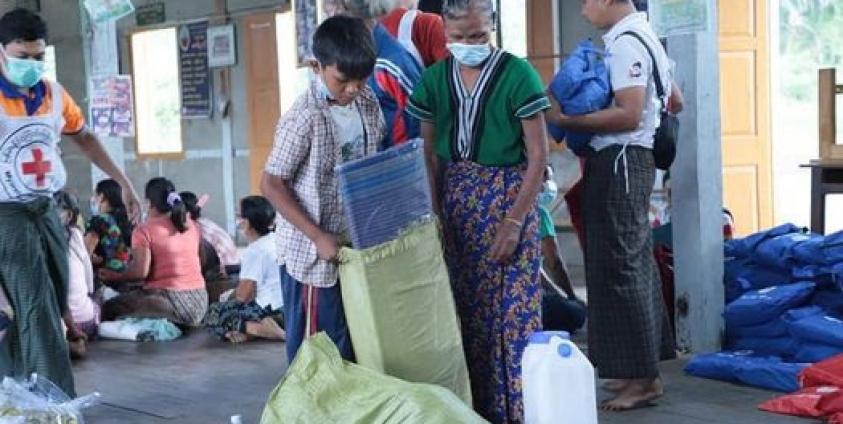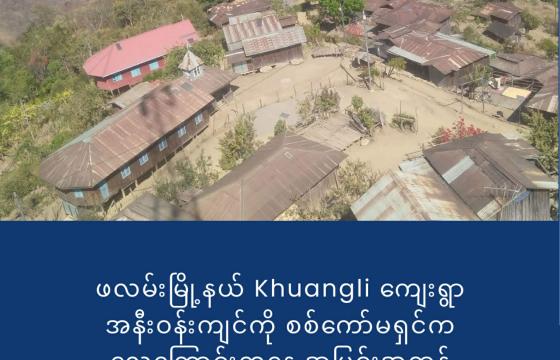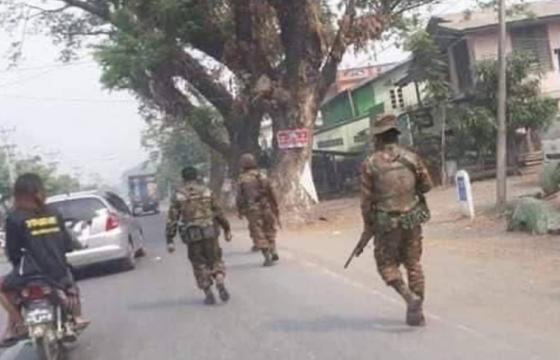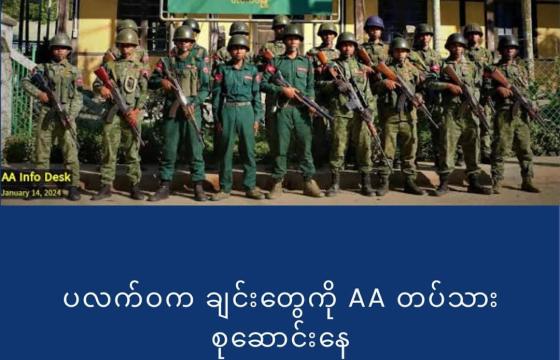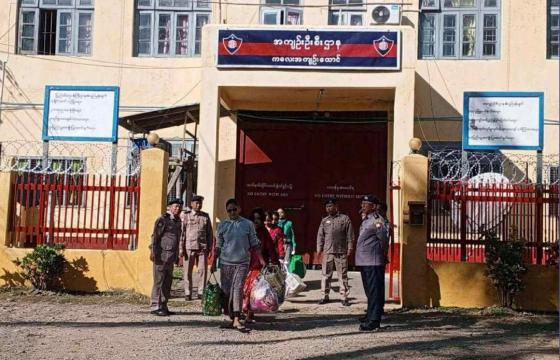Since fighting flared up in Chin State, the number of Chin war refugees has been increasing. Chin people have either been displaced to other regions in Myanmar or have fled across the border to India.
Most of the refugees who fled to India are also working mainly in random jobs. According to the United Nations High Commissioner for Refugees (UNHCR),
20 percent of Chin Hills' population has fled from the war, Out of the total
70 percent are IDPs, and 30 percent have gone to India.
Refugees from the fighting observed that IDPs tend to flee to the areas that they believe will be peaceful, and where they can depend on the donors for their livelihood. A volunteer helping the IDPs said, "Many of them flee to areas not far from their township. Some went to Magway and other Regions. The IDPs who remain in Chin State rely mainly on donors.”. Some of the Chin people who fled the war in the city, have resumed limited farming activities. But they can't go back to the same scale of cultivation as before, and are restricted to grow small plantations now.
The volunteer explained “ Only a few people have gone back to farming in the mountains. We can't do something like rice farming yet, because this has to be done all year round. The military can launch operations at any time. If IDPs want to return to cultivating crops, they choose small plantations”.
Some IDPs go to live with their relatives and help them with their work. IDPs who do not take refuge in Magway and Sagaing Regions, which are close to Chin State, cannot rely on donations and have to work in random jobs to earn income.
"People who reach areas other than the Magway Region are looking for jobs that match their skills. There are a lot of displaced people working in orchards and farming businesses. But most of them do not get regular jobs," said an IDP in Yangon.
Some residents from Paletwa Township in Chin State moved to Yangon after intense battles broke out between the Military Council and Arakan Army (AA) in Paletwa in 2017. Since then, the donors have arranged accommodation for the refugees, and now new IDPs are going to join them.
"Some families who fled from Paletwa to Yangon in the past settled in Hmawbi. New people fleeing the war are also going there now. Most of the displaced people live where they have arrived with the help of local volunteers”, the IDP in Yangon said.
Some of the refugees who come to Magway Division face difficulties because of the different business practices in Chin Hills and the flat plain areas. Then they have to work as manual laborers to earn money, said a resident of Kyaukhtu Township in Magway.
"There are many refugees in Kyaukhtu. They have no proper jobs. Some of them do small jobs such as cutting the lawn and clearing weeds. They have a hard time because the nature of jobs here is completely different to work in the Chin Hills. Even so there are only a few displaced people in Magway who dare to go out to get work”, he added.
One of the IDPs said that the main problem for the refugees is the shortage of rice, and they always hope for donors to meet their needs. “Rice is the most important need. If you have rice, you can eat it. Rice is the primary need for refugees.” Among the IDPs, those with good family backgrounds rent houses and work in Yangon, a person who moved to Kyaukhtu from a village in Mindat Township said.
A women's rights activist said that in the early days of their lives fleeing the war, the IDPs spent the little money they had saved, and as time went by, they had to do random jobs.
“Refugees used to bring the cash they had saved. But for those who were forced to leave their homes in a hurry, they were in deep trouble. In Pakokku, some war refugees are starving. So they have to earn money by doing random jobs”, she said.
"At the moment, everyone is in a difficult economic situation, so they are relying on donors. Some of them have to sell their personal belongings. Even those who were prosperous in the past, are currently facing a lot of difficulties”, she added. The women's rights activist also commented that during this period of fleeing the war, people lost their jobs, became depressed and domestic violence often occurred in their families.
“Some married women gave up their jobs to join CDM and they eventually ended up with no income. When there is no income, the stress is high, and some women experience domestic violence. This problem can be even worse, if the husband drinks alcohol”, she also said.
She also encouraged the women fleeing the war not to be discouraged in difficult situations and to be strong as much as possible. “"I want to urge the women to be strong. Stand firm according to your commitments. Try to overcome the difficulties that your family is facing. Pray to the God you believe in”, she said. She also suggested that women should get help and advice from society, if they face acts of domestic violence.


